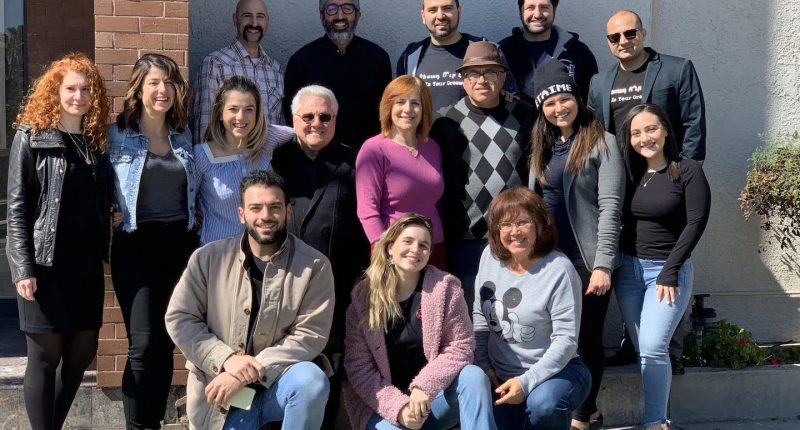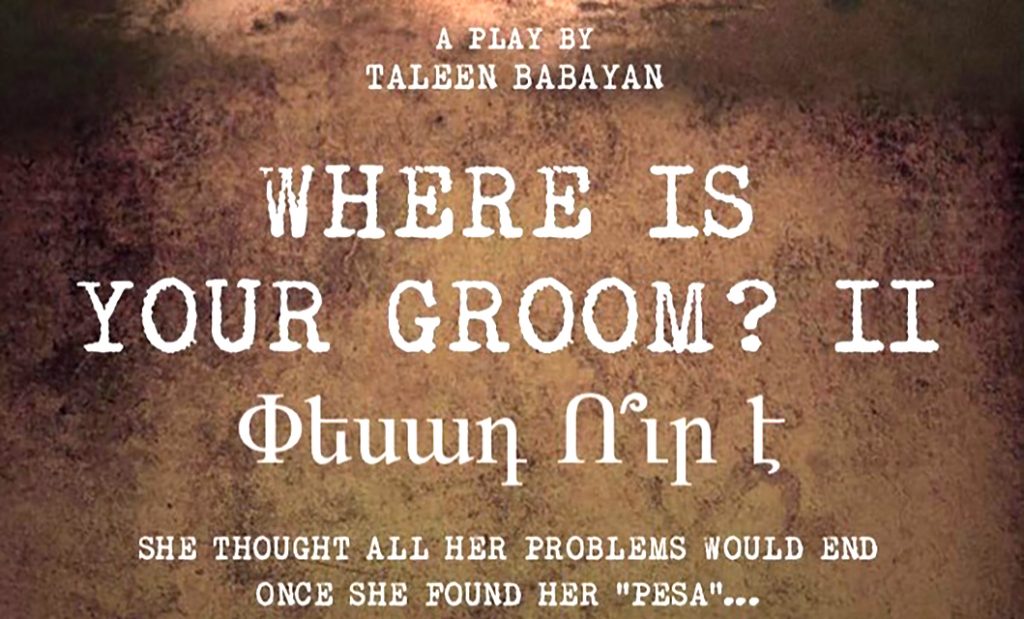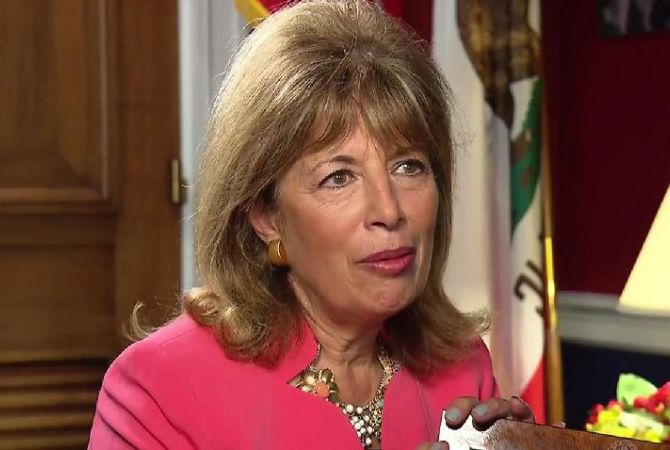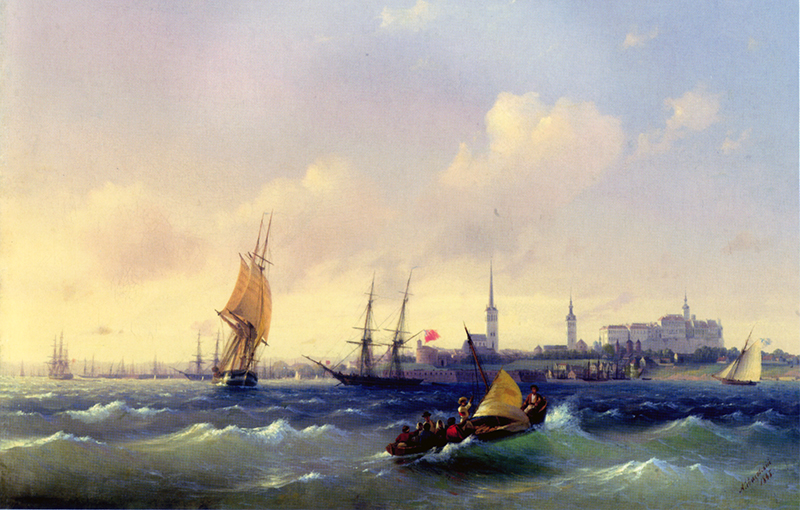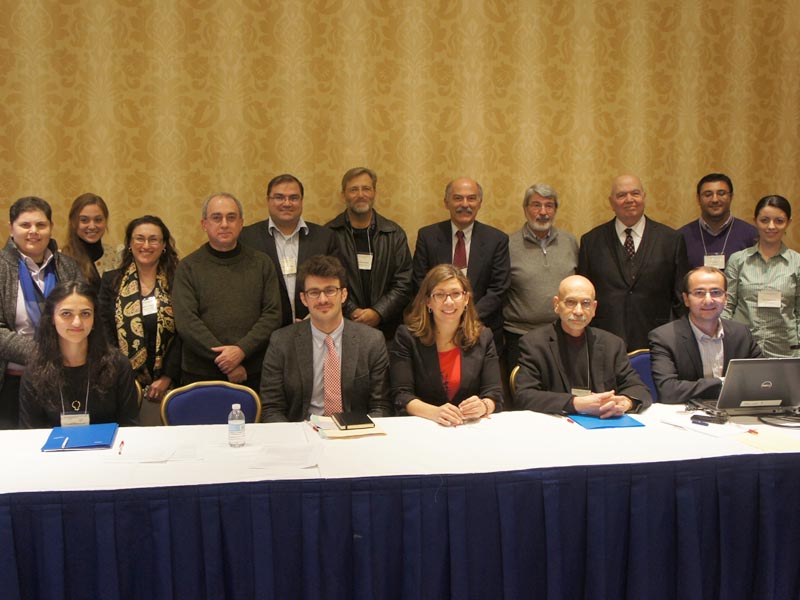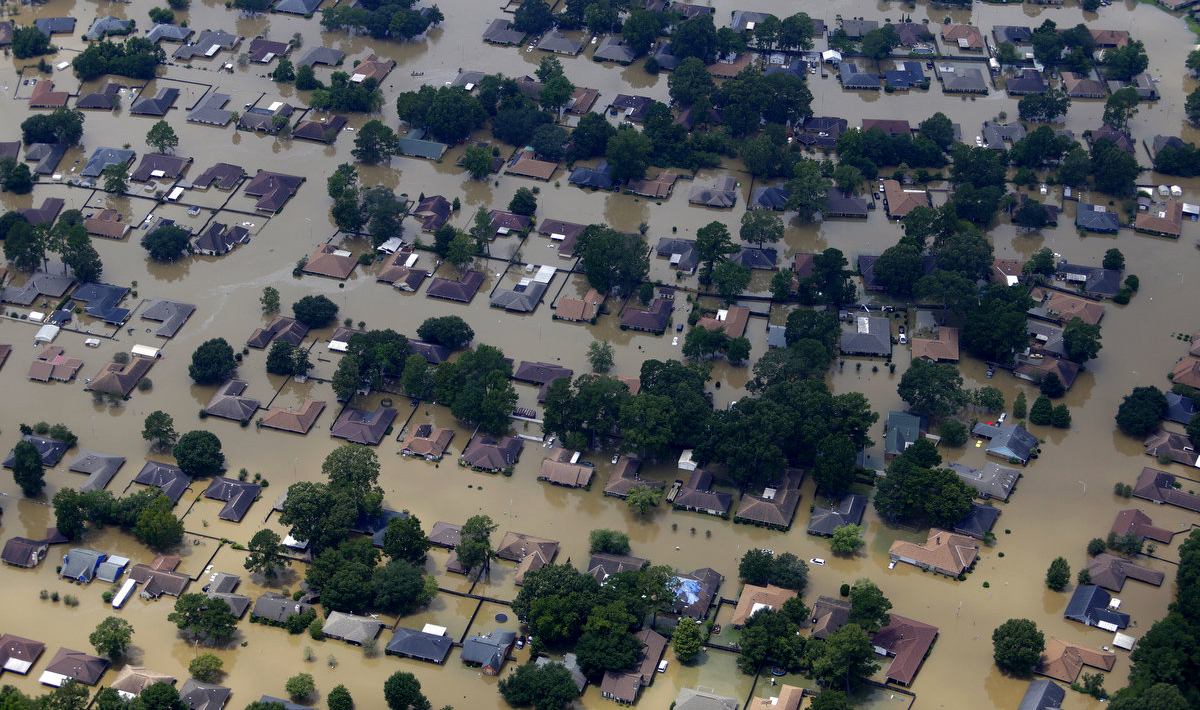By Taleen Babyan
Los Angeles, to me, never symbolized stars, signs and stardom. Whenever we packed our bags during the holidays, it wasn’t Hollywood we were heading to – we were preparing to enter an Armenian enclave, one that couldn’t be found in the homeland or in my parent’s birthplaces of Aleppo and Beirut. It was something else, a unique sensation, an amalgam from one tip of the Diaspora to the other.
As an East Coaster, it was a culture shock every time we traveled to Los Angeles to visit my dad’s side of the family. The innumerable trips we took throughout the years gave me a chance from a young age to not only catch a glimpse of, but to relive my parents’ experiences of their upbringing: eating manaish fresh out of an industrial oven a couple of blocks down from my grandparents’ apartment on Everett Street in Glendale, watching my grandfather in his retirement still at work for the community at the Tekeyan Cultural Center in Altadena, observing the editor of Nor Gyank laying out the newspaper on Colorado Street, visiting my cousins at the AGBU Manoogian-Demirdjian Armenian day school, and tasting my grandmother’s homemade դդումի անուշ (pumpkin jam) as alumni from Beirut’s Vahan Tekeyan School breezed in and out for impromptu coffee and conversation with their former principal, Yervant Babayan.
Our tourist photos weren’t only at the Grauman’s Chinese Theater or the Walk of Fame in Hollywood. They were also a few miles away along the storefronts of Zankou Chicken and PEKO records. It was a marvel to me that the intertwining of the past and the present existed outside of the storied Diasporan communities of the Middle East, which certainly were not found in my hometown of Saddle River, New Jersey. Even the climate and the beaches were somehow reminiscent of the Mediterranean.
As I’ve woven into the thread of the intricate fabric here in Los Angeles for almost a year, I once again see the fusion of the past and the present: reading books of an eminent church leader who read my grandfather’s books, seeing him in action coalescing the community the same way he saw my grandfather do a generation before; shopping at the same bookstore I would go to as a youngster, now the next generation at the helm with a similar vision intact; going up and down those steep stairs of the Tekeyan Cultural Center, this time passing by, instead of entering, my grandfather’s old office.
This city is the Armenian Diaspora squeezed into a radius of less than 100 miles. Among the cramped freeways and open valleys, pockets of neighborhoods have formed and flourished over the years: Armenians from Iran, Lebanon, Iraq, Turkey, Syria, Cyprus and Armenia itself, each bringing something palatable to the diversified table, whether it be the literature, music, cuisine, customs or history reflecting the very communities Armenians found safe haven and newfound opportunities. In a solitary sitting, conversation can be shared with a multitude of Armenians who have contrasting perspectives, but whose core essence remains the same. I was reminded of this during an exchange with an Uber driver, whose family fled Van during the Armenian Genocide and sought solace in Tehran, only to witness further upheaval at the onset of the Iranian revolution, serve in the Iran-Iraq war and eventually succumb to that Armenian trajectory, displaced once again and finding sanctuary here in Glendale. As we drifted along the 405 freeway towards Sherman Oaks, our divergent pasts took a backseat and we spoke, in different dialects, neither of us leaning into English. Our impact as Armenians has always been far beyond our numerical count, as is our inherent ability to create community, in even the most far-flung parts of the world, and that is because our themes are universal: from migration to the concerns of assimilation and ultimately, to preserving the Armenian language, culture and religion, no matter the cost.
It was with all of this in mind when I wrote Where Is Your Groom? (Փեսադ Ո՞ւր Է:) and its sequel, both of which are rooted in this idea of finding the meaningful similarities in our palpable differences, while showcasing these relevant themes. The first part focused on a diasporan Armenian family’s desire for their children to carry on their culture, while the second, in a stand-alone play, highlights the comedy that emerges when two families come together to plan their children’s wedding, bringing to life, through satire, the alternating worries of mixed generations.
The play’s purpose, however, surpasses the stage. It gives me the chance to work with, and learn from, veteran actors who graced the stages of Beirut, where the Armenian Diaspora experienced a rebirth, and where the curtains didn’t close on a city bombarded by civil war. The cast includes leading actors, such as Harout Soghomonian, who, along with Maro Ajemian and Sossy Varjabedian, transcend a bygone golden era.
“I am delighted to be part of an original play and interact with all generations of Armenians,” said Soghomonian, an actor, comedian and musician who plays the role of the patriarch, Koko in the play. “This is a great group of talented individuals who I look forward to sharing the stage with while bringing laughter and meaningful dialogue to the audience.”
The 20-member cast and crew – including Aleen Khanjian Esq., Mardik Iskenderian, Asdghig Abadjian, Arevig Abadjian, George Semerjian and Arees Setrak – have become embedded in their culture while expanding their networks and friendships by joining this production.
“I am so eager to possess this creative outlet,” said Khanjian, who assumes the part of the non-Armenian wedding planner. “This play is fresh, funny, and relatable and I feel privileged to take part in it.”
They fuse their experiences with Sarineh Garapetian and Raffi Rupchian, trained actors who are familiar with the stage through diverse productions on the stage and in film.
Where Is Your Groom? (Փեսադ Ո՞ւր Է:) also creates a forum for those with a natural propensity towards acting, providing a safe space to further dig into the craft.
“It’s been a refreshing and fulfilling journey to find the key to unlock my character, who is a mirror image of our generation,” said Zaven Demirjian, who tackles the role of the groom, Ari. Demirjian’s interest in theater was sparked as a student at the AGBU Manoogian-Demirdjian School, where he participated in the drama department. This production has further ignited his passion for acting. “I am excited for the audience to engage and connect with our characters’ modernized struggles, not only in relationships, but also in themselves.”
This play has brought together the East and West coast Armenian communities as many longtime friends, who are currently living in Los Angeles, became part of this production, including Aleen Vartkessian, Joseph Hovsepian, Hannah Pollock, Haig Hovnanian and Deepender Singh. A decades-long cross-country friendship is highlighted through Los Angeles-born cast member Dr. Sharis Simonian, whom I met during the AGBU Summer Internship Program in New York.
“I’m thankful to be around such talented and witty Armenians who are all beyond dedicated to bring laughter and joy to the community,” said Vartkessian, Director of Sales at Kate Somerville Skincare, who plays the role of Sirvart, the blunt and overbearing future mother-in-law.
It reflects, through comedy, the distinct characteristics among Armenians and the rich tapestry of our people.
“This captivating play is a true reflection of an Armenian household and culture,” said Singh, a project manager, who represents the unique fragments of the Diaspora through his portrayal of an Armenian-Indian character. “Taleen has broken ground by conveying the influences of the Diaspora, proving that they are all beautifully colored flowers comprising the single wholesome Armenian rooted tree.”
Growing up, the arts were important in our home. There was something to learn from every production, from the classics on Broadway to the cultural theater of the Tekeyan Cultural Association’s Mher Megerdichian Theater Group of Greater New York. It was there I experienced Hagop Baronian’s satire “The Flatterer” and William Saroyan’s nostalgic “My Heart is in the Highlands.” I saw community members slip into characters and hit the stage, upholding the words and creations of revered playwrights reflecting their time period.
Where Is Your Groom? (Փեսադ Ո՞ւր Է:) is our generation’s contribution. Since its first production in 2013 at The Players Theatre in New York’s legendary Greenwich Village, we have performed 15 times for over 4,000 audience members, who each found pieces of themselves in the characters on stage. Over 50 cast and crew have participated in these manifold productions, on both coasts, developing friendships, and even finding grooms. Through theater, one of the world’s oldest artistic forms of expression, a light shines on the critical and timely subjects in the Diaspora and ignites a necessary conversation to ensure that we remain tied to our heritage, in our own way and on our own terms.
At a recent rehearsal, cast member Henry Abadjian handed me a card that was once written to his mother. My grandfather’s steady handwriting was unmistakable, as were his trademark traces of erased pencil lines under each carefully written word. On the back of the card was the address of that Everett Street apartment, to this day an untouched space in Glendale’s ongoing transformation. There was something very mythical about that past once again permeating into the present, tying generations and geographic locations together, to bring the present to life – on stage.
“Where Is Your Groom? (Փեսադ Ո՞ւր Է:) II” will take place on Sunday, March 31, 2019 at 6:00 p.m., at the AGBU Manoukian Performing Arts Center in Pasadena, CA. Running time is 90 minutes plus intermission. Play is in English with some Armenian. Tickets are available online at https://www.showclix.com/event/where-is-your-groom-ii or by phone at 888-718-4253.

